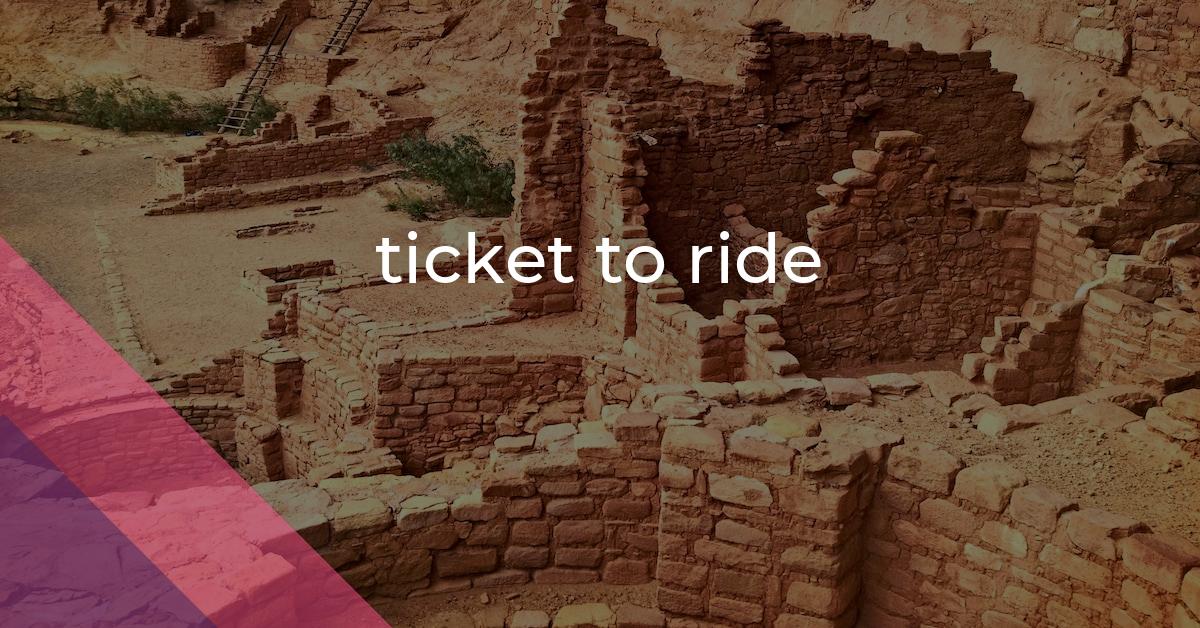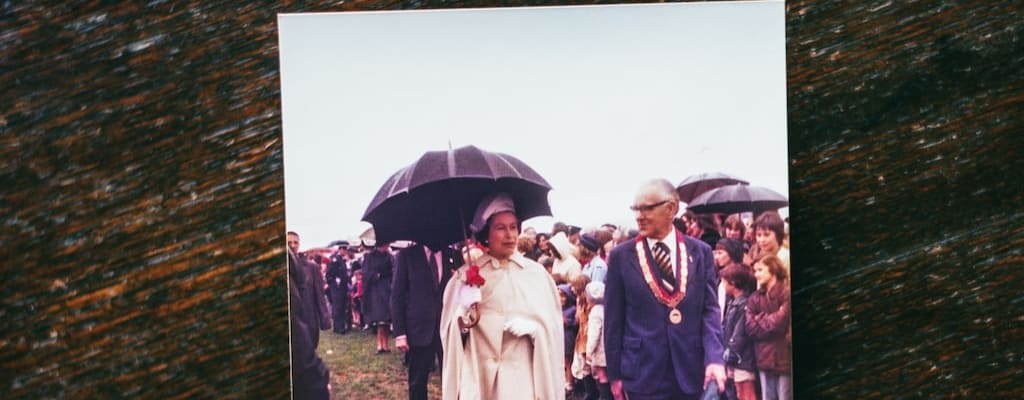ticket to ride: Idiom Meaning and Origin
What does ‘ticket to ride’ mean?
The idiom "ticket to ride" means a means of transportation or a mode of travel that allows someone to go somewhere or achieve something.

Idiom Explorer
The idiom "write one's own ticket" means to have the power or ability to control one's own fate or destiny, typically in terms of career or success.
The idiom "to go" means to leave a place or to travel to a different location. It can also refer to the outcome or result of a situation or event. The exact meaning depends on the context in which it is used.
The idiom "thumb a ride" means to hitchhike by signaling a passing vehicle to stop and give you a ride by sticking out your thumb. It implies the act of relying on strangers for transportation.
"That's the ticket" means that something is just right or exactly what is needed. It can also express approval or agreement with a suggestion or idea.
The idiom "take the ride" means to go along with the flow, accepting the unpredictable and uncertain outcomes of a situation without trying to control or change them.
The idiom "set of wheels" refers to a mode of transportation, usually a car or a bike, that someone owns or is using. It implies having the means to get around and be independent.
The idiom "ride the wave" means to go along with or take advantage of a favorable situation or trend. It implies adapting to the circumstances and enjoying the success or benefits that come from it.
"Ride the rails" is an idiom that means to travel by train, often used specifically to refer to the experience of being a hobo and illegally hopping on trains to get from place to place.
The idiom "ride out" means to endure or survive a difficult situation or problem without giving up or being greatly affected by it.
The idiom "ride one's luck" means to depend on chance or luck, often in a risky or daring situation, rather than on one's own skills or abilities. It suggests taking advantage of favorable circumstances without having much control over the outcome.
Unveiling the Journey
The idiom "ride the rails" is closely related to the concept of a "ticket to ride." Both idioms involve transportation, specifically the idea of embarking on a journey. While "ticket to ride" implies the possession of a ticket as a means to travel, "ride the rails" emphasizes the act of actually traveling on a train or railway system. It captures the sense of adventure and the experience of being on the move, exploring new destinations and embracing the unknown.
Another related idiom is "take the ride." This phrase echoes the notion of seizing an opportunity or embracing a new experience. It suggests a willingness to embark on a journey, whether it be a literal one or a figurative adventure. "Take the ride" signifies a readiness to face challenges, overcome obstacles, and fully engage in whatever lies ahead. It embodies a sense of enthusiasm and a willingness to embrace the possibilities that life offers.
The idiom "buy a ticket to" further expands on the concept of a "ticket to ride." While "ticket to ride" implies the possession of a ticket as a means to pursue something, "buy a ticket to" emphasizes the act of actively acquiring or obtaining that opportunity. It conveys the idea of making an intentional investment in one's goals or desires, whether it be through hard work, determination, or personal sacrifice. "Buy a ticket to" reflects a sense of agency and empowerment, acknowledging that individuals have the ability to create their own opportunities.
Lastly, the idiom "free ride" presents an interesting contrast to the concept of a "ticket to ride." While a "ticket to ride" implies the act of obtaining a means to pursue something, "free ride" suggests the absence of effort, commitment, or responsibility. It conveys the idea of receiving benefits or advantages without deserving or earning them. "Free ride" can be used to describe situations where individuals benefit from the efforts or achievements of others without contributing their fair share. The idiom serves as a reminder that opportunities often come with responsibilities and that success should be earned through hard work and dedication.
These related idioms provide additional layers of meaning to the concept of a "ticket to ride." They expand on the idea of embarking on a journey, embracing opportunities, and taking ownership of one's path. By incorporating these idioms into the discussion, we gain a richer understanding of the implications and applications of the "ticket to ride" idiom.
The idiom "ticket to ride" is a versatile and widely recognized phrase that signifies the possession of an opportunity or means to pursue something. It has its origins in The Beatles' song of the same name and has since gained popularity and widespread usage. The idiom can be used in various contexts, from personal aspirations to professional pursuits, and evokes a sense of freedom, adventure, and empowerment. Additionally, related idioms like "ride the rails," "take the ride," "buy a ticket to," and "free ride" further enhance our understanding of the concept, providing additional depth and nuance to the phrase. As language continues to evolve, idioms like "ticket to ride" will undoubtedly adapt and resonate with new generations, capturing the timeless desire for exploration, growth, and seizing opportunities.
Example usage
"Ticket to ride" can be used in a sentence in the following examples:
- She saved up enough money to buy a ticket to ride on the train to her dream destination.
- I am applying for a scholarship in hopes of getting a ticket to ride my way through college.
- Winning the competition was her ticket to ride and pursue a career in dancing.
More "Transportation" idioms



